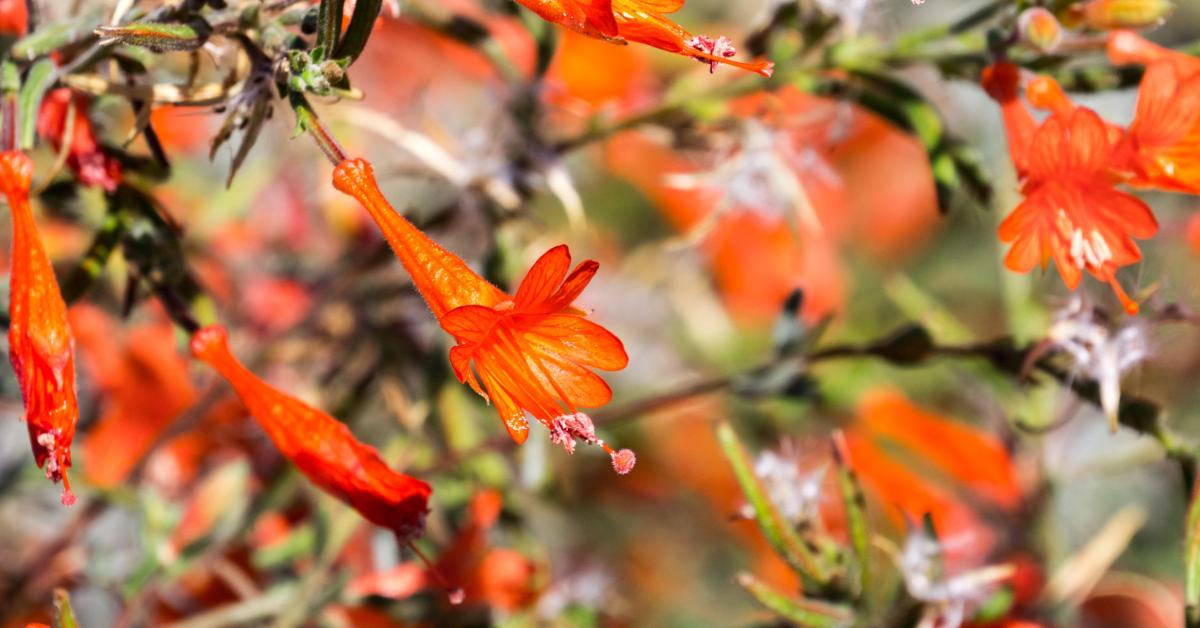In the vast and vibrant world of horticulture, flowers that begin with the letter Z offer a unique blend of beauty, resilience, and intrigue. From the vivid hues of Zinnias to the delicate blossoms of Zephyranthes, these plants bring diversity and charm to gardens and landscapes. This article embarks on a botanical journey, exploring eight remarkable flowers that start with Z.
List of Flowers That Start with Z
- Zinnia (Zinnia elegans)
- Zephyranthes (Zephyranthes candida) – Rain Lily
- Zantedeschia (Zantedeschia aethiopica) – Calla Lily
- Zamia (Zamia furfuracea) – Cardboard Palm
- Zauschneria (Epilobium canum) – California Fuchsia
- Zelkova (Zelkova serrata)
- Zephyr Lily (Zephyranthes atamasca)
- Zigadenus (Zigadenus elegans) – Death Camas
1. Zinnia (Zinnia elegans)
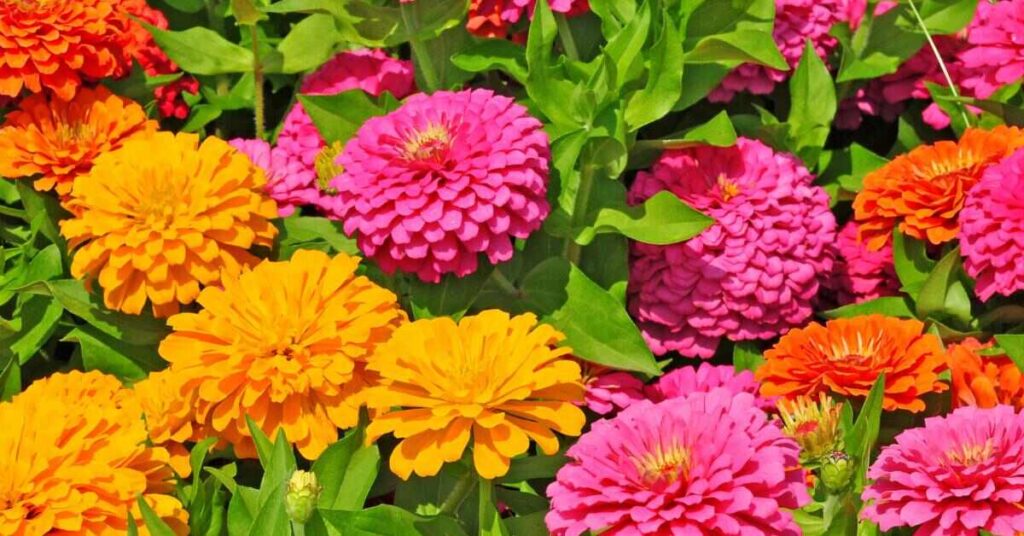
When it comes to flowers that start with Z Zinnia is a vibrant and colorful flower known for its ability to bloom from early summer all the way into fall, offering a long-lasting display of beauty in the garden. Originating from Mexico, zinnias have been bred into a wide range of sizes, colors, and petal shapes, making them a versatile choice for any garden. They are also known for attracting butterflies and bees, making them an excellent choice for pollinator-friendly gardens.
- Besoins en eau – Moderate, prefers well-drained soil and can tolerate some drought once established.
- Couleur de la floraison – Wide variety including pink, red, orange, yellow, green, purple, and multicolored.
- Zone de rusticité – 2-11 as annuals.
- Hauteur à maturité – Ranges from 4 inches to 4 feet (10 cm to 1.2 m), depending on the variety.
- Exposition au soleil – Full sun.
2. Zephyranthes (Zephyranthes candida)
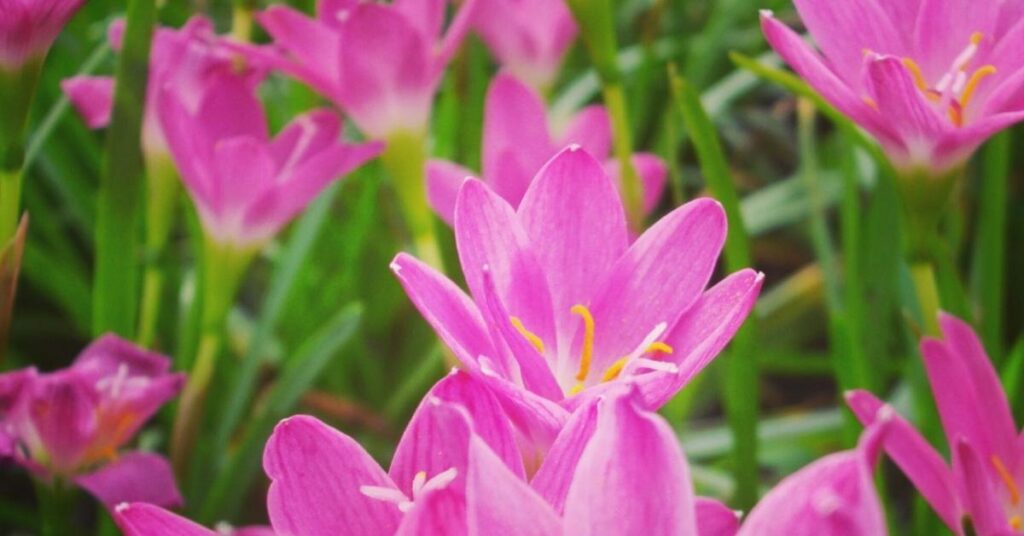
Also known as the rain lily, Zephyranthes candida is a charming and delicate bulbous plant native to South America. It’s celebrated for its ability to burst into bloom shortly after rain, hence its common name. The flowers are typically white or pink and appear on slender stems above the grass-like foliage. This plant is an excellent choice for rock gardens, borders, and container planting.
- Besoins en eau – Moderate to high, prefers moist soil but can tolerate short periods of dryness.
- Couleur de la floraison – White, pink, and yellow varieties are most common.
- Zone de rusticité – 7-10.
- Hauteur à maturité – 6 to 12 inches (15 to 30 cm).
- Exposition au soleil - Plein soleil à mi-ombre.
3. Zantedeschia (Zantedeschia aethiopica)
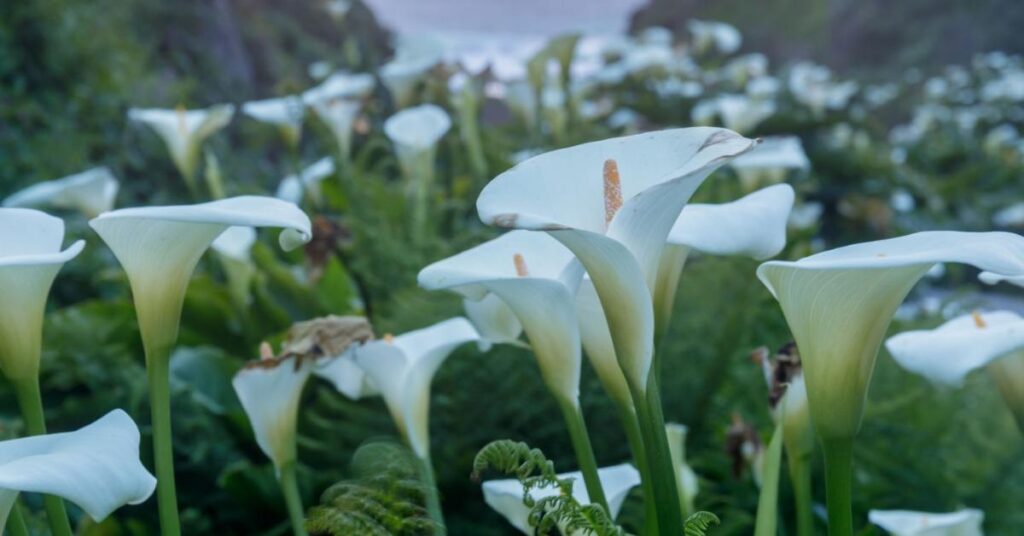
Commonly known as calla lily, Zantedeschia aethiopica is neither a true lily nor a calla. It’s a member of the Araceae family, native to southern Africa. Calla lilies are known for their elegant, trumpet-shaped flowers and large, arrow-shaped leaves. They have become symbols of purity, sympathy, and beauty. Despite their exotic appearance, they are relatively easy to grow.
- Besoins en eau – Regular watering to keep the soil moist, especially during growth and bloom periods.
- Couleur de la floraison – Traditionally white, but hybrid varieties can be pink, orange, yellow, or purple.
- Zone de rusticité – 8-10 (as perennials), can be grown as annuals in other zones.
- Hauteur à maturité – 1 to 3 feet (30 to 90 cm).
- Exposition au soleil - Plein soleil à mi-ombre.
4. Zamia (Zamia furfuracea)
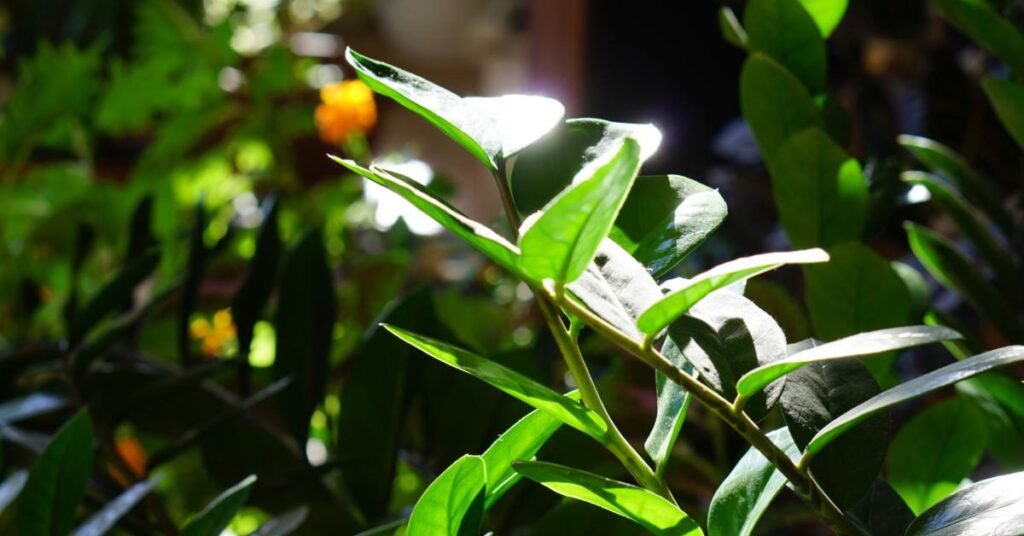
While not a flower in the traditional sense, Zamia furfuracea, commonly known as the cardboard palm, is a cycad with a very ancient lineage. It produces a cone rather than a flower and is known for its resilience and unique, palm-like appearance. Native to Mexico, this plant is not a true palm but gets its common name from the texture of its leaves. It’s an excellent choice for xeriscaping and adds a prehistoric touch to the landscape.
- Besoins en eau – Low, requires well-drained soil and is drought-tolerant once established.
- Couleur de la floraison – Brown (cone).
- Zone de rusticité – 9-11.
- Hauteur à maturité – 3 to 4 feet (about 1 meter).
- Exposition au soleil - Plein soleil à mi-ombre.
5. Zauschneria (Epilobium canum)
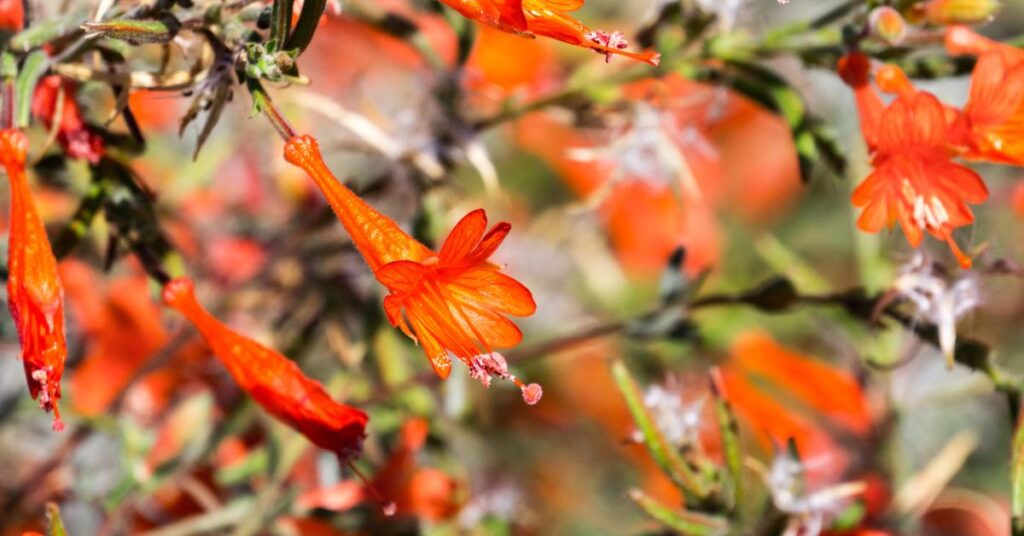
Commonly known as California fuchsia or hummingbird flower, Zauschneria is not a true fuchsia but shares some visual similarities, making it one of the most stunning flowers that start with Z. It’s a perennial plant native to the dry slopes and canyons of the southwestern United States. It thrives in drought-tolerant gardens and attracts hummingbirds with its vibrant, trumpet-shaped flowers.
- Besoins en eau – Low; well-adapted to dry conditions and requires minimal watering once established.
- Couleur de la floraison – Bright orange to red.
- Zone de rusticité – 5-9.
- Hauteur à maturité – 1 to 2 feet (30 to 60 cm).
- Exposition au soleil – Full sun.
6. Zelkova (Zelkova serrata)
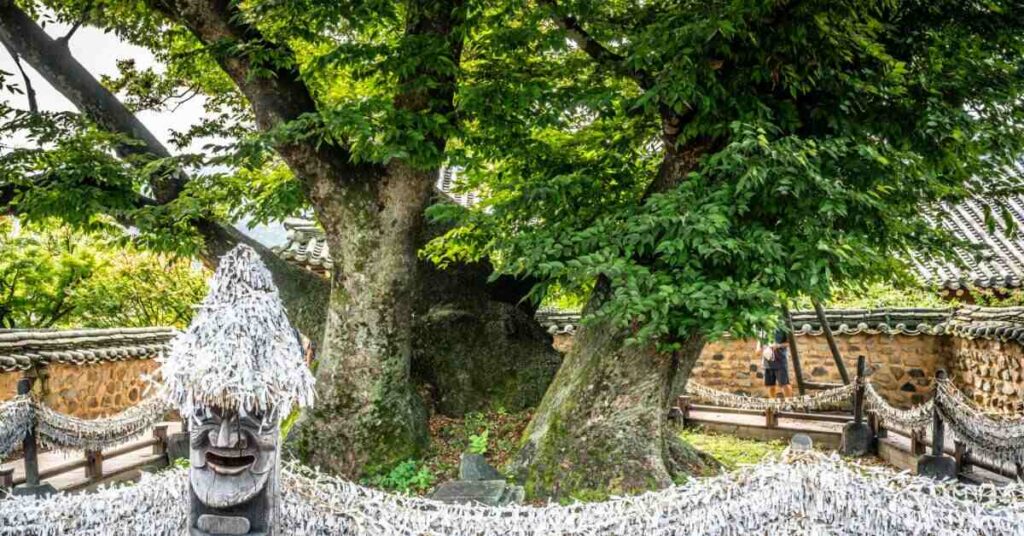
While not a flowering plant in the traditional sense, the Zelkova tree is worthy of note for its beautiful foliage and the small flowers it produces. Native to Japan, Korea, and Taiwan, Zelkova serrata is often used as a replacement for the American elm in landscapes, owing to its resistance to Dutch elm disease. Its vase-shaped growth habit and stunning fall color make it a favorite for street plantings and parks.
- Besoins en eau – Medium; requires regular watering, especially in dry conditions.
- Couleur de la floraison – Greenish, insignificant flowers followed by small, non-ornamental fruit.
- Zone de rusticité – 5-8.
- Hauteur à maturité – 50 to 80 feet (15 to 24 meters).
- Exposition au soleil – Full sun.
7. Zephyr Lily (Zephyranthes atamasca)
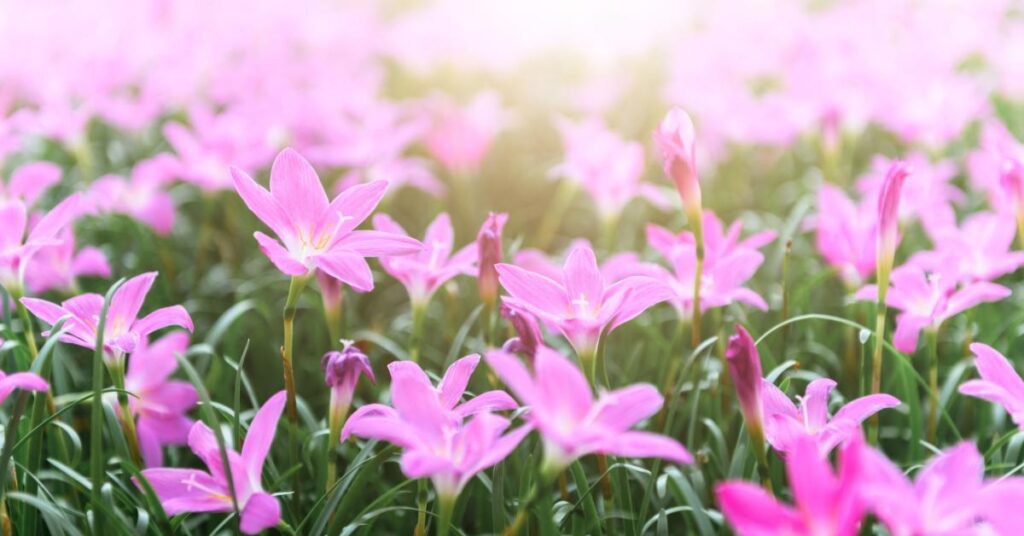
Similar to Zephyranthes candida, the Zephyr Lily, or Atamasco Lily, is a bulbous plant native to the southeastern United States. It produces elegant, funnel-shaped flowers and is often found in meadows and at the edges of forests. It’s valued for its delicate appearance and ease of care in a garden setting.
- Besoins en eau – Moderate; prefers moist, well-drained soils but can tolerate some drought.
- Couleur de la floraison – White, sometimes with a pink hue.
- Zone de rusticité – 7-10.
- Hauteur à maturité – 6 to 10 inches (15 to 25 cm).
- Exposition au soleil - Plein soleil à mi-ombre.
8. Zigadenus (Zigadenus elegans)
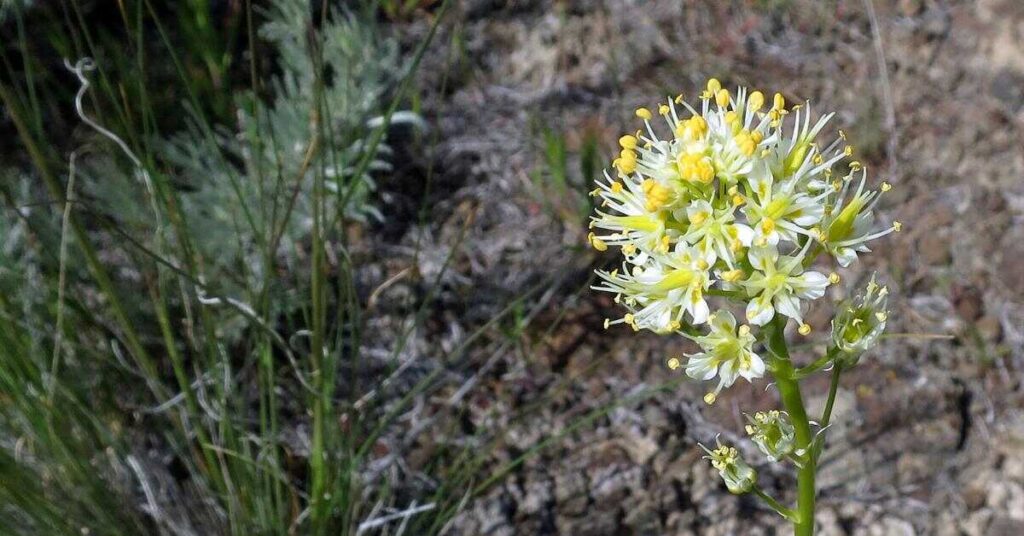
Also known as death camas, Zigadenus is a genus of plants that are known for their toxicity to livestock and humans if ingested. Despite its dangerous attributes, it’s valued for its striking greenish-white flowers and its role in native plant gardens where its toxicity to pests can be an advantage.
- Besoins en eau – Low to moderate; prefers well-drained soils.
- Couleur de la floraison – Greenish-white.
- Zone de rusticité – 4-9.
- Hauteur à maturité – 1 to 3 feet (30 to 90 cm).
- Exposition au soleil - Plein soleil à mi-ombre.
